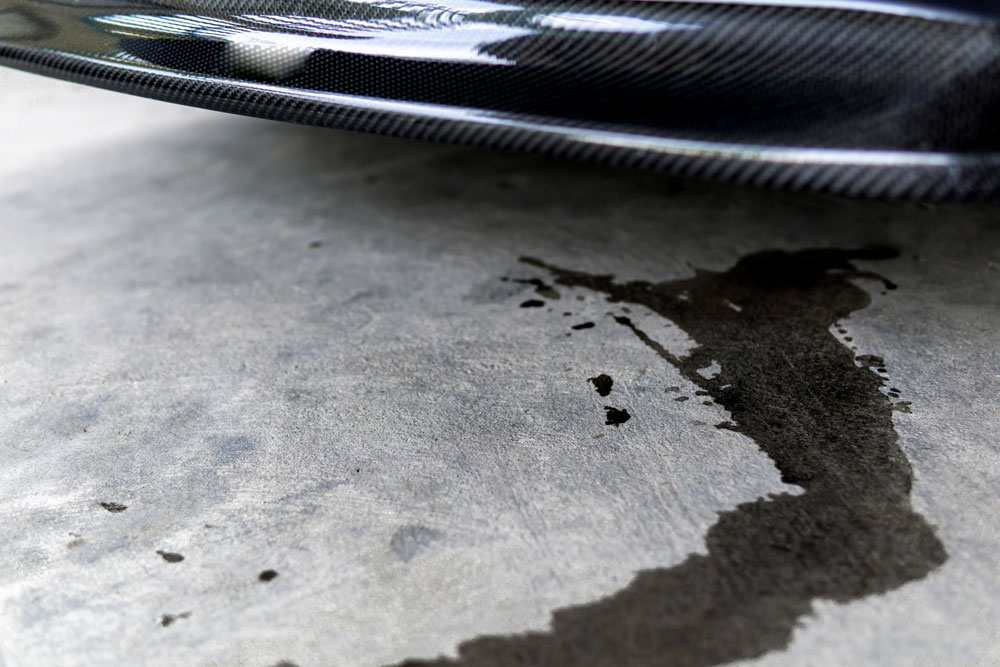How to Clean Up Engine Oil Spills
 CONTENTS
CONTENTS
- What causes engine oil spills?
- The dangers of an engine oil spill
- How to clean up an engine oil spill
- How to prevent an engine oil spill
- Get in touch
Engine oil is essential to lubricate your car's metal components, and keep them free from debris and dirt. So an oil spill is not just messy, it can also indicate a serious problem with your car.
In the event of a spillage, our oil spill cleaning services can quickly restore the affected area to a safe environment. Our technicians are fully permitted to handle and discard of oil, and are available nationwide, 24/7, 365 days a year.
Keep reading to learn more about why your car is leaking engine oil and what to do when it does.
What causes engine oil spills?
Engine oil spills are typically caused by a few common issues. One is oil leaking from seals and gaskets that have been damaged or worn away due to everyday use. Another reason is accidental spillage during an oil change.
A less common issue involves the faulty installation of components such as the oil filter or drain plug. If these parts are not correctly installed, they could let out engine oil.
In addition to mechanical failures and human errors, natural disasters like floods can also lead to large-scale engine oil spills. When vehicles get submerged in floodwaters for extended periods, their engines may leak significant amounts of lubricant into the surrounding environment. You can learn what the top causes of an engine oil spill are in this blog.
The dangers of an engine oil spill
Oil spills have serious implications not only for your vehicle's performance but also for environmental safety. Oil leaks pose threats to local water supplies and wildlife habitats because petroleum-based products contain toxic substances.
Besides the ecological damage, these spills pose significant fire hazards, too. Engine oil has a high flash point, meaning it can ignite easily if exposed to sparks or open flames. A seemingly minor mishap could result in devastating fires.
Exposure to engine oil is not safe for humans, either. Prolonged exposure might lead to skin dermatitis and more serious conditions, like skin cancer.
How to clean up an engine oil spill
If the spill has occurred at home, contact professional cleaners straight away. It might seem tempting to clean up smaller spills yourself, particularly with so many DIY cleaning methods shared online, but oil spills are hazardous for both people and the environment, and they need specialist treatment.
Improper handling, like letting the oil wash onto soil or pouring it down the sink could lead to costly environmental fines and damages. Not only that, you are more likely to touch the oil or inhale its toxic fumes, putting you at high risk of health issues. While you wait for specialist cleaners to arrive, avoid contact with the oil, and keep pets and children away from the area.
If the spillage occurs in the workplace, and there is a spill kit on site and employees are trained in engine oil spill clean up, have them clear up the spill and dispose of the waste. You can learn more about what to do when an oil spill occurs in this blog.
How to prevent an engine oil spill
Maintaining your vehicle's health is the first step towards preventing engine oil spills. Regular checks on the car’s engine, specifically looking for any signs of leaks or damage, can help spot potential issues early.
Pay heed to the warning lights on your dashboard, too. These could indicate a potential issue with the engine such as low pressure or a high temperature, which might lead to an oil spill if left unchecked.
Frequent servicing and inspections done by professionals are crucial, as well. Checks on the car's engine can help detect any issues that may arise.
Another important aspect is using high-quality motor oils in your vehicle. They have better heat resistance, which means less likelihood of causing an oil leak due to overheating. You should also avoid overfilling your car’s oil tank because this puts more strain on gaskets and seals, making them prone to breakage and increasing the chances of a leak occurring.
Get in touch
Our fully qualified technicians can be on site in a matter of hours to clean the engine oil spill if it's an emergency. They have experience cleaning up a wide range of oils including gasoline, diesel, and hydraulic oil, as well as oil spills in water, on soil, and on hard surfaces. Our technicians have been accredited by a number of organisations, too, including BICSc, IOSH, IPAF, and SafeContractor.
You can find out more about our engine oil spill clean up services by calling our friendly team on 0208 066 0360 or sending an email to enquiries@icecleaning.co.uk.

Speak with me today,
I’m here to help
By asking you a few questions either via phone or email I can immediately provide a realistic estimation of the cost.
You’re in good company. We’ve cleaned for the following commercial clients… View all

Why choose us?
- Cater to a wide variety of cleaning situations
- Nationwide coverage, available 24/7
- Cater to commercial and domestic clients
- Free survey provided prior to quotation
- Emergency response team
- Offer a bespoke service designed to suit all your needs
- All technicians hold professional health and safety qualifications, including BICSc, IOSH, Dewpoint Professional & Safe Contractor
We’re fully accredited
We place best practise, professional expertise and health and safety at the core of our business. We’re fully compliant with all legal obligations. You can view a list of our accreditations below, or visit our Health & Safety page for more information.











-RGB-small.1707319151.jpg)




















